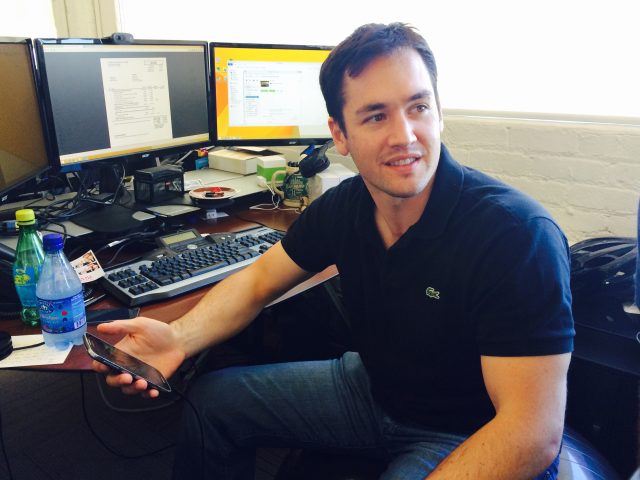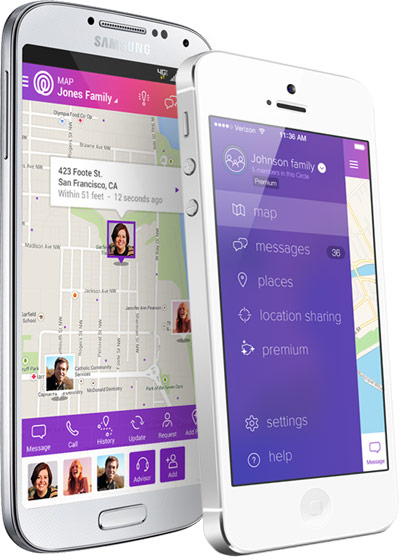
In May 2014, Life360 CEO Chris Hulls received an aggressive patent demand letter. The letter, from lawyers representing a company called Advanced Ground Information Systems (AGIS), told him he needed to pay for a "royalty-bearing license" to its four patents, or Life360 and its customers would have to "cease and desist" from infringement.
In other words: pay up, or shut down your company. The letter demanded a response within three days. Hulls wrote back:
Dear Piece of Shit,
We are currently in the process of retaining counsel and investigating this matter. As a result, we will not be able to meet your Friday deadline. After reviewing this matter with our counsel, we will provide a prompt response.
I will pray tonight that karma is real, and that you are its worthy recipient,
Chris
On that Friday, Life360 got sued. The lawyers attached Hulls' "Dear Piece of Shit" letter as an exhibit.
What AGIS' lawyers could not have known is that they'd picked out one of the few small companies that wasn't going to back down from a patent fight—and Hulls wasn't going to play by the usual rules. Life360 was supposed to be their "easy" target. The lawyers, from a top IP law firm called Kenyon & Kenyon, had plans to hunt bigger game later—they had also sent (more nicely worded) patent threat letters to Google, Facebook, and Foursquare.
What Hulls couldn't have known is that in less than a year, he'd be in front of a jury, explaining his "Dear Piece of Shit" missive to an eight-person jury in faraway Florida. It wouldn't be easy. And AGIS was no typical "patent troll," but a small company that just hadn't managed to be profitable.
Still, he was in a unique position where he was ready and able to fight back. Life360 had just got a third round of funding, $50 million, and he had a board who would support him. When the company was younger and smaller, he'd had to pay off patent trolls—more than once. "If you have $3 million in the bank, can you really risk a suit that's going to be one million, when you could make it go away for $100,000?" he said in an interview with Ars. "Every time we wrote that check, my soul died a little bit." Hulls had worked for years with little or no salary. "Now, right when I'm finally starting to pay myself decently, I have this lawyer trying to steal from me," he said.
“Circles” and “LifeRing”
Life360 offers a service called "Circles" that allows family and friends to see each other on a map and send group messages. It's a service that answers the age-old question of "where are your friends and family, and what are they up to?" It's far from a new idea.
AGIS sells "LifeRing," which it markets to military and police clients. It also allows clients to view themselves on a map and contact each other.
The two companies have never been competitors. Life360 offers its app for free on Android and iPhone and charges $5 a month to "premium" users who get extra features. AGIS, by contrast, competes for government contracts, sometimes connected to specific events. For instance, the Honolulu Police Department contracted with AGIS in 2011 to use its software during the Asia-Pacific Economic Cooperation forum.
AGIS has made a few million dollars since it was founded more than a decade ago, but it has never had a profitable year. The company is run out of the home of its founder, Malcolm "Cap" Beyer, who lives in Jupiter, Florida. At some point in 2014, Beyer decided to look into enforcing some of its 13 issued patents, the oldest of which has a 2004 filing date.
Beyer hadn't heard of Life360 until last year, when a board member contacted him, suggesting that the company might be a good target for patent licensing. In May of that year, the company's lawyers sent the threat letter, which said Life360 had infringed four US patents, numbered 7,031,728, 7,764,954, 8,126,441 and 7,672,681.
A patent for calling people on a map
AGIS claims its patents are infringed by very basic functions of the Life360 app, such as its ability to "allow a user to touch a family member's symbol on a map and initiate a rapid voice communication or text message."
"We're getting sued for having markers on a map showing where people are and allowing communication between them," he told one reporter shortly after he was sued, adding that he could "show them a Star Trek episode from the 1960s" that had a similar system.
Knowing that AGIS was likely to pursue other companies, Life360 offered free legal support to any other startups AGIS might sue, including research on the patents and prior art. Hulls took other steps that patent defendants aren't "supposed" to do, like simply calling up the inventor whose patents he'd supposedly infringed and trying to initiate a discussion. But Beyer didn't even know who he was.

"AGIS may not be the exact definition of a troll, but the entity's behavior is eerily similar," Hulls wrote. "Perhaps it's just a business struggling to stay afloat and grasping at any thread to stay alive."
More provocatively, he also created a website with the name of AGIS' founder, malcolmbeyer.com. "If you support jobs and innovation, we encourage you to investigate the actions of Malcolm K. Beyer and AGIS Inc.," the site states.
There was bad blood between Hulls and Kenyon & Kenyon lawyer Mark Hannemann in particular, whom Hulls believes is the true driver behind the lawsuit. At one point, Hulls remembers Hannemann telling him that "for everyone else this is about money, but for you it's personal."
"If we go to trial, I'm going to put you out of business," Hannemann told Hulls after one required mediation session. (Hulls' lawyer confirmed the encounter happened; Hannemann didn't respond to questions about the discussion.)
He wasn't kidding. The companies weren't competitive, but shortly before trial AGIS suddenly created a "consumer app" for Android called HoundDog, which would increase their chances of getting an injunction if they won. (The app still wasn't available on the first day of trial, but at some point last week it went up on the Google Play store.)
But trial was where it was headed. Hulls had every reason to roll the dice with a jury, because the payout Hannemann was demanding was massive. While he can't disclose offers from mediation, AGIS would shortly be asking a Florida jury to award it $3 million in damages.
Life360 is still a relatively small company, with 60 employees working to build up its base of active users. "My morals aside, they made it easy for us to go to court, because the numbers are so big," he said.
“This case is a collision”
On March 8, Hulls and his co-founder Alex Haro flew to Florida for the week-long trial, which would be held in the federal courthouse in West Palm Beach, near AGIS' home office. The company had hired Kent Baldauf of the Pittsburg-based Webb law firm, whose team has a history of taking patent cases for determined troll-fighters, including Lee Cheng, the top lawyer for Newegg.

US District Judge Donald Middlebrooks made several key rulings just before trial about what evidence would and would not come in. The "Dear Piece of Shit" letter, as a pre-trial communication, would be shown to the jury, Middlebrooks ruled. Baldauf knew he'd have to get out in front of that and planned to mention it during his opening statement.
"This case is a collision," AGIS lawyer Mark Hannemann said in opening statements. "It is a collision between two creative, high-tech companies and two creative entrepreneurs who started those companies and drove them on."
AGIS' software "turns your smartphone into basically a command and control center, right there in your hand," Hannemann said. Now, that is a good idea now and the companies are quite successful with it. But it was an even better idea back in 2004, and that's the perspective we need to use to look at this case."
There was "no evidence at all" that Hulls had copied AGIS, Hannemann acknowledged. But Life360 still needed to pay for its patents.
"I had the pleasure of meeting Mr. Beyer and Ms. Beyer throughout the course of this litigation," Kent Baldauf said during his opening for Life360. "They are very nice people. The fact that they are nice people and it is a nice story certainly doesn't mean that these patents are infringed. It doesn't mean that Life360 is liable for damages."
Baldauf continued:
There has been absolutely no competition between these companies. There is also testimony from Mr. Beyer that he said that the only time he is really sure that he first positively learned about Life360 was when they were identified by their lawyers. Letters were sent to Google, a letter was sent to Facebook."
The jury was going to see a letter, and "the choice of language you are going to see is unfortunate," said Baldauf. "To let the genie out of the bottle, Mr. Hulls responded and titled the e-mail back, 'Dear Piece of Shit.' I hope that doesn't appall anybody. Mr. Hulls is going to tell you he was angry, and this is the company that he poured his heart and soul into, brought it up from nothing, and here is a letter from someone he never heard of before, telling him that he has three days to pay up or stop."
reader comments
135